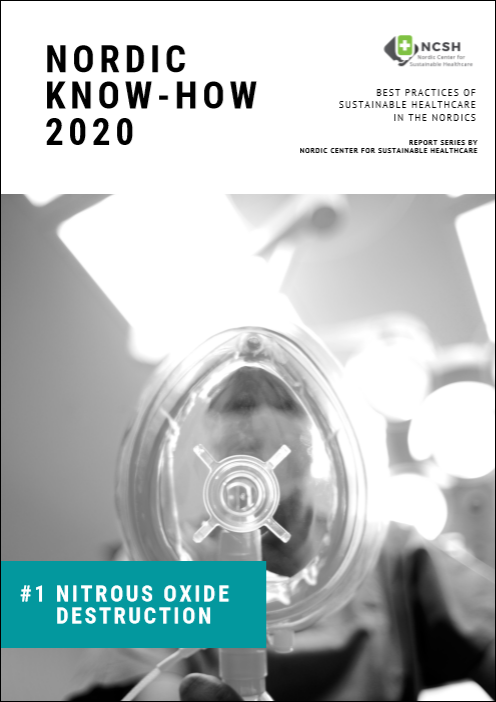Smart Safe & Sustainable Healthcare
The Swedish life science sector supports the development of resilient and sustainable healthcare systems. World-class healthcare architects, planners and companies offer green infrastructure solutions and cutting-edge digital technologies—laying the foundation for smart, safe and sustainable care. Innovative medical technologies also contribute to more efficient and patient‑safe advanced healthcare. Are you ready to take part in building the healthcare systems of tomorrow?
The Challenge
Together for a Sustainable Future
Specialised hospital care consumes a large share of healthcare resources, and often involves products and processes that generate hazardous waste and harmful emissions.
At the same time, medical progress has made treatments more advanced, personalised and frequently more costly. Hospital stays can also have unintended negative effects on patients, such as separation from familiar environments and increased risk of healthcare-associated infections.
As many countries continue to invest heavily in hospitals and healthcare infrastructure, the demand for efficiency is growing, from financial, human and environmental perspectives alike.
How can we ensure that the hospitals of tomorrow meet the needs of both people and the planet?
Sweden is addressing this challenge by combining innovative health technologies, sustainable design, and digital solutions, offering a model for resilient, efficient and environmentally responsible healthcare systems.
Swedish Excellence
Sweden Builds for Sustainability
Swedish hospitals take a holistic approach to sustainability, combining climate-smart construction with healing environments and patient‑centred design.
Avoidable hospitalisations are reduced through outpatient care, remote monitoring and digital tools that improve planning, workflows and patient flows. Most hospitals also host innovation departments and collaborate with academia and industry.
Swedish expertise in healthcare architecture, green infrastructure and advanced digital technologies forms the foundation for smart, sustainable and safe hospital environments. Innovative medical technologies further contribute to efficient and high‑quality care.
With a strong focus on circular practices, climate-smart pharmaceuticals and digitalisation, Sweden offers a model for healthcare systems that meet both patient and environmental goals. When care is needed, hospitals and suppliers share responsibility in reducing emissions, advancing towards net‑zero healthcare.
Sweden’s University Hospitals
Sweden has seven university hospitals that combine highly specialised care with research, education, sustainability and innovation:
-
Karolinska University Hospital – Stockholm & Huddinge
-
Sahlgrenska University Hospital – Gothenburg
-
Skåne University Hospital – Malmö & Lund
-
Uppsala University Hospital – Uppsala
-
Örebro University Hospital – Örebro
-
Linköping University Hospital – Linköping
-
Norrland University Hospital – Umeå
Quiz
100 years is the expected life lenght of the New Karolinska University hospital in Solna, Sweden?
The correct answer is ✅True. Nya Karolinska Solna is intended to last approximately 100 years – although we obviously do not know how the health care will look then.
Does 6% of global carbon dioxide emissions result from N2O?
The correct answer is ✅True. 6% of global carbon dioxide emissions result from N2O, out of this 1% originates from medical use in the healthcare sector.
Does Healthcare in the world’s largest economies account for more than 4% of global emissions?
The correct answer is ✅True. The research found that the combined emissions from hospitals, health services and the medical supply chain across the OECD group of market-based economies, as well as China and India, make up around 4,4% of the global total. This is a larger share than either aviation or shipping.
Do Sweden have 60 regionally-owned public hospitals?
The correct answer is ❌False. Sweden has 70 regionally-owned public hospitals, seven university hospitals, and six private hospitals.
Latest publications and Swedish actors within this area

Nordic know-how #8 financing energy and climate-smart healthcare
This report addresses the topic of financing energy and climate-smart healthcare, focused specifically on hospitals' green transition in Sweden. It aims to collect, summarise and make accessible different ways to go about and approach such funding.
Visit Nordic Center for Sustainable Healthcare
Best practices of sustainable healthcare in the Nordics
Nordic Know-How 2020 is a report series created by Nordic Center for Sustainable Healthcare (NCSH), within the project Platform for Internationalisation: Energy and Climate Smart Healthcare. The project is financed by the Swedish Energy Agency. This series consists several reports which provide an overview of good examples and best practices of sustainable healthcare in the Nordics. Each report has a certain theme relating to a sustainability challenge in the healthcare sector. The purpose of this series is to bring Nordic practices and knowledge to international actors, spreading Nordic expertise in this field to the world.
Visit Nordic Center for Sustainable Healthcare
Nordic Smart City Roadmap
Promoting principles that honour a more human centric, inclusive and collaborative approach to developing smarter and more sustainable communities. The Nordic Smart City Roadmap provides a framework for smart city work in cities and municipalities both in the Nordics and internationally. Based on common Nordic values such as trust, equality, and co-creation, it will form a narrative of what constitutes a Nordic smart city – making it globally accessible for cities and municipalities around the world to understand and learn from its purposes and qualities. Published 2021.
Nordic Smart City RoadmapThe future of healthcare
View this film presentation of Karolinska University Hospital – one of the world’s most sustainable and largest university hospital in Europe. Patients come to Karolinska from all over Sweden and from other countries. We receive 1.35 million patient visits each year. Additionally, Karolinska University Hospital has been ranked as the fifth-best hospital in the world and the best in Europe, according to Newsweek’s global list of the World's Best Hospitals.








